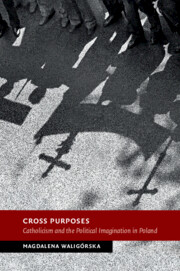We present the results of a 2014 survey of Canadian parliamentarians, journalists and bloggers in which respondents were asked to rank competing definitions of open government. Overall, respondents preferred to define open government in terms of access to information and sources. However, controlling for age, ideology and language, we also found that respondents in the different positions ranked definitions of open government differently. Journalists are more likely than any other group to define open government in terms of access to information and sources. In contrast, parliamentarians who were members of a governing party were as likely to choose definitions of open government that emphasized public participation as they were to choose definitions that emphasized access to information. Opposition parliamentarians share more similarities with government parliamentarians than with journalists. These results suggest that key actors in the Canadian policy landscape define open government in ways that are consistent with their institutional interests. We suggest that these results reflect ways in which open government operates more like a buzzword, which helps explain the common pattern whereby opposition parties make promises to be more open and, after taking power, operate in less open ways. Moreover, these results raise questions about the extent to which open government can actually operate as an organizing principle.
